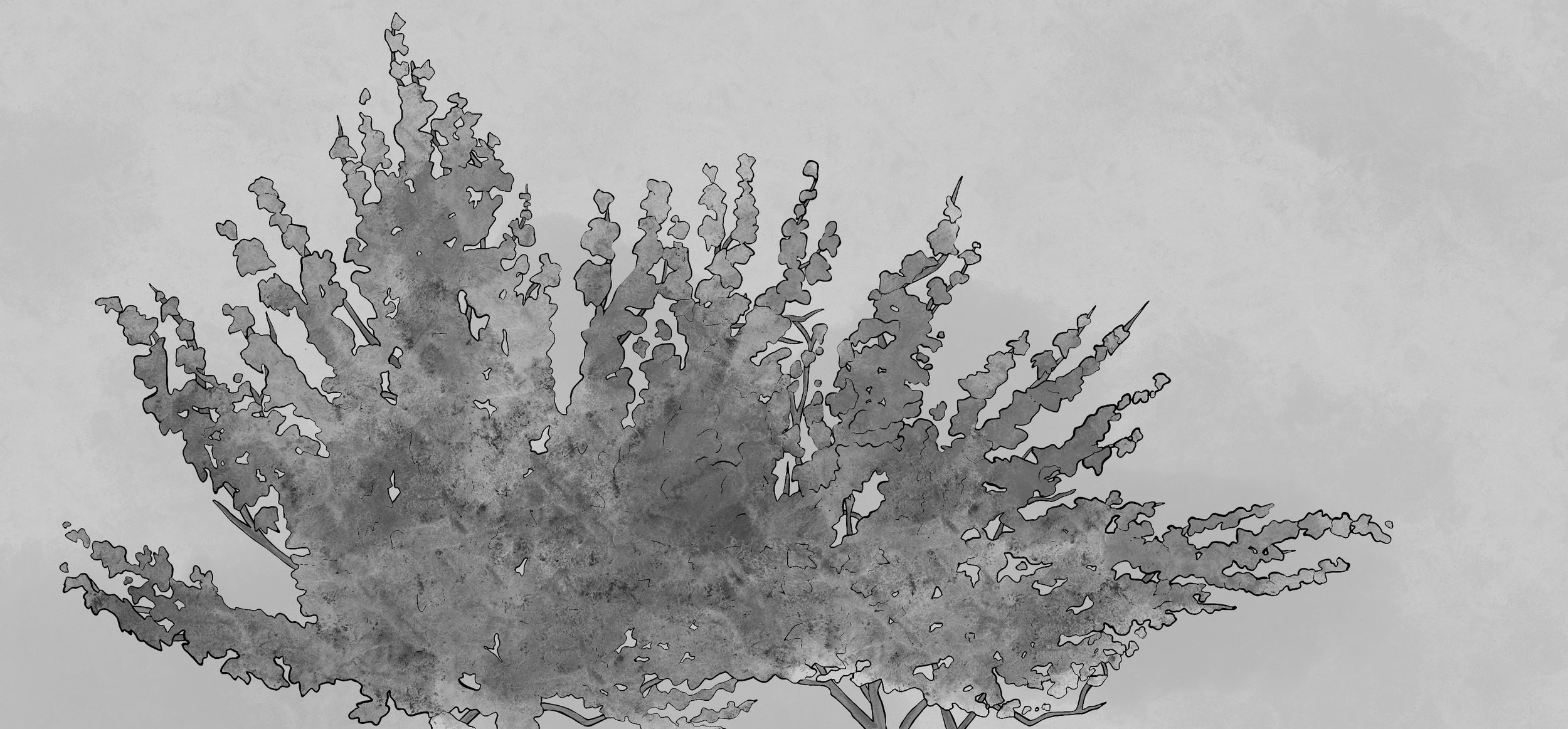
Yellow Arrow Vignette | AWAKEN
The Ills of Invasion
Katarina Xóchitl Vargas
Here in Tenochtitlán, we have two seasons:
the rainy season, when we thrive.
and the dry season, when we wither.
When it rains, it rains stories.
On my rooftop, we barrio kids gather
to hear Conchita tell of the Noche Triste,
in 1520, when Spanish swords
waited, waited, waited . . .
for the sound of joyous drumming:
(our ancestral drumming), before . . .
slicing, slicing, slicing-off
the arms and legs of the danzantes.
“They timed the massacres perfectly,”
she’d say, “for when we were happiest.”
Dogs stop barking to listen,
and gray lizards freeze on pink walls.
In me, also are two seasons:
the writing season, when I dance.
and the dry season, when I am sick.
The doctor says the drought
is in my “Latina” DNA.
“Nahua DNA,” I correct.
There are 25 million
slaughtered ancestors in my genes.
When the withering starts
they spill into my veins all at once:
ancient danzantes with phantom limbs—
feet stomping, ankles rattling,
reawakening my Earth with ayoyotes.
With copalli, together
we try to smoke out the topography
of terror, drum life back in,
stomp out said crippling diagnosis.
Healing rolls in with thunder,
as the huehuetls and I reprogram
the rain-dance back into me.
Flushing genocide out of my cells.
One mazehualiztli at a time.
* * *
ayoyotes: Dry shells used as percussion instrument in Nahua culture
barrio: Spanish for neighborhood
copalli: Nahuatl for Copal incense
danzantes: Spanish for dancers
huehuetls: Nahuatl for wise elders
mazehualiztli: ancient ritual dances of the Nahuas
Noche Triste: The “Sad Night” when Spanish invaders slaughtered all the dancers of Mexico-
Tenochtitlan.
About the author
Katarina Xóchitl Vargas (she/her) is an emerging Xicana poet, originally from Mexico. After her family moved to the U.S., she began composing poems to process alienation. A dual citizen of the U.S. and Mexico, today she writes resistance poetry and lives on occupied Tsenacommacah territory where she is working on her first chapbook. Xóchitl is the first-place recipient of the inaugural Mulberry Literary Fresh Voices Award. Her poems first appeared in Somos en escrito: The Latino Literary Online Magazine, Cloud Women's Quarterly Journal, The Acentos Review, Penumbra, and Barrio Panther. Follow her on Instagram @Cantos_de_Xochitl
